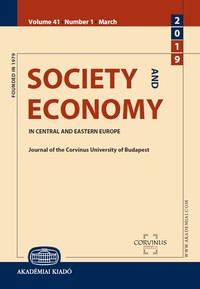Evidence of effective financial crisis management from South Korea: An example for other regions
Evidence of effective financial crisis management from South Korea: An example for other regions
Author(s): Saysi SayasengSubject(s): National Economy, Financial Markets
Published by: Akadémiai Kiadó
Keywords: financial crisis; South Korea banking sector
Summary/Abstract: Evidence from the global financial crisis (2007–2008) and the Asian financial crisis (1997) have taught policymakers valuable lessons. The contagious effects of these crises have proven unavoidable and have led to negative economic development. However, South Korea, unlike other countries, has recovered remarkably from both episodes of financial turmoil and proved their ability to maintain positive growth throughout the two periods. This study investigates the correlation between the evolution of South Korean banking and corporate sector before, during and after these crises. A VAR model was employed to test the effectiveness of the South Korean government's policies, in response to the financial crisis from 1997 to 2017, using macroeconomic variables as proxies for newly introduced policies, and non-performing loans for controlled risks. The empirical results indicate impulse response functions which suggest that changes in macroeconomic variables as a representation for the policies resulted in a reduction of non-performing loans. This implies successful risk reduction and an overall economic recovery.
Journal: Society and Economy. In Central and Eastern Europe ǀ Journal of the Corvinus University of Budapest
- Issue Year: 42/2020
- Issue No: 1
- Page Range: 21-38
- Page Count: 18
- Language: English

